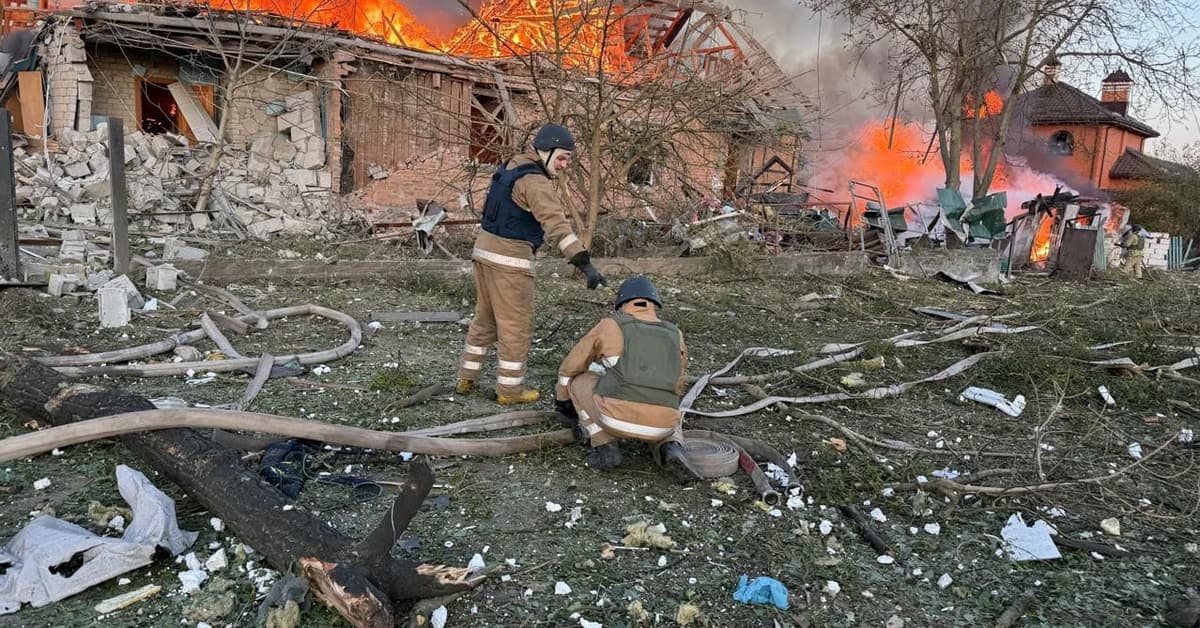
The Government safety Centre (RCB) began work on a comprehensive strategy for the evacuation of civilians for all of Poland. According to RCB manager Zbigniew Muszyński, the fresh plans are to respond to contemporary threats and draw direct conclusions from the armed conflict in Ukraine. This is simply a groundbreaking action that aims to systematically strengthen the resilience of the state and supply real safety for citizens in crisis situations, from war to natural disasters.
The legal basis for these actions is new civilian Protection and Defence Actwhich entered into force in January 2025. It requires the RCB not only to establish a national evacuation plan but besides to coordinate the activities of all voivodes in this area. The aim is to make a coherent and effective strategy that will operate at all level of administration – from the central government, through voivodships, to powiats and gminas. This is simply a fundamental change to guarantee that, in the event of a threat, procedures are uniform and understandable to all.
The fresh bill is the foundation. What changes for citizens?
The key paper that launched the full process is the civilian Protection and Defence Act of 2025. Its Article twenty-two explicitly gives the Government safety Centre a mandate to make and coordinate a national evacuation plan. In practice, this means No more scattered and frequently inconsistent procedureswhich could neglect at the minute of trial. The fresh rules force a systemic approach, where each level of power has clearly defined tasks.
For the average citizen, this means above all greater certainty that the state has real and rehearsed protection mechanisms. The plan assumes a multi-level structure that is to be effective both in peacetime and in an increased threat situation. The Act besides regulates another key safety aspects, specified as alert and alert systems, shelter infrastructure, strategical resource building and financing rules These actions. This comprehensive approach is intended to guarantee that Poland is prepared for various crisis scenarios.
Experience from Ukraine. Why was the old strategy inadequate?
The armed conflict in Ukraine has become a valuable origin of cognition for Polish planners, though tragic. The reflection of the mass evacuation of millions of civilians showed how immense logistical and organisational challenges specified a process is. Ukrainian experience brutally verified existing assumptions, pointing to the request to make flexible plans that can be rapidly adapted to a rapidly changing situation.
It turned out that not only the method side of the operation is crucial, specified as providing transport or shelter, but besides its information and intellectual dimension. Effective communication with citizens, providing reliable data and intellectual support are elements that find the success of the full action. Moreover, fresh plans must take into account risks beyond the armed conflict, specified as natural disasters, major industrial accidents or natural disasterswhich may besides require fast displacement of large groups of the population.
What will evacuation look like in practice? Military and civilian cooperation
The fresh guidelines are created in close cooperation with the General Staff of the Polish Army, which reflects the modern approach to state defence. The integration of civilian and military resources is absolutely crucial to the success of specified a complex operation. In crisis situations of a large scale, specialist military resources – from means of transport, through medical personnel, to logistical facilities – can play a decisive role in support of civilian activities.
Former head of the Ministry of abroad Affairs, Maciej Kierwiński, repeatedly stressed the fundamental importance of transport infrastructure. The state must be able to transport the endangered population to safe, pre-designated locations. An crucial component of the plans is besides ensuring smooth coordination between voivodships and with neighbouring countries. In a situation of crisis, population movements seldom limit to 1 region, so efficient cooperation at administrative and state borders is simply a priority.
Who will be given peculiar care? Plans will include the weakest
One of the most crucial lessons learned from the analysis of humanitarian crises is the request to take account of the circumstantial needs of different social groups. Experience from Ukraine has shown that the deficiency of preparation for the service of people with peculiar requirements leads to serious organizational and human dramas. Therefore, the fresh Polish evacuation plans place a strong emphasis on adapting procedures to the needs of specified groups.
Special support will be provided in particular:
- Elderly and disabledwhich require specialized transport and care.
- Families with tiny children and pregnant womenfor which adequate sanitary and surviving conditions should be provided.
- Foreignerswho may have a linguistic barrier and do not know Polish administrative procedures.
These factors should be taken into account from the outset to guarantee that the evacuation process takes place in a humanitarian and orderly manner, minimising chaos and hazard to the weakest.
The improvement of fresh comprehensive evacuation plans is simply a long-term process, but essential for real strengthening of Poland's security. The aim is to make pragmatic and realistic solutions that will be tested rigorously during national and regional exercises. For citizens, this is simply a concrete signal that the state takes its responsibilities seriously and prepares itself for the most hard scenarios, which present is the foundation of social security.
More here:
The government is preparing a plan to evacuate Poles. fresh law and key conclusions from Ukraine









